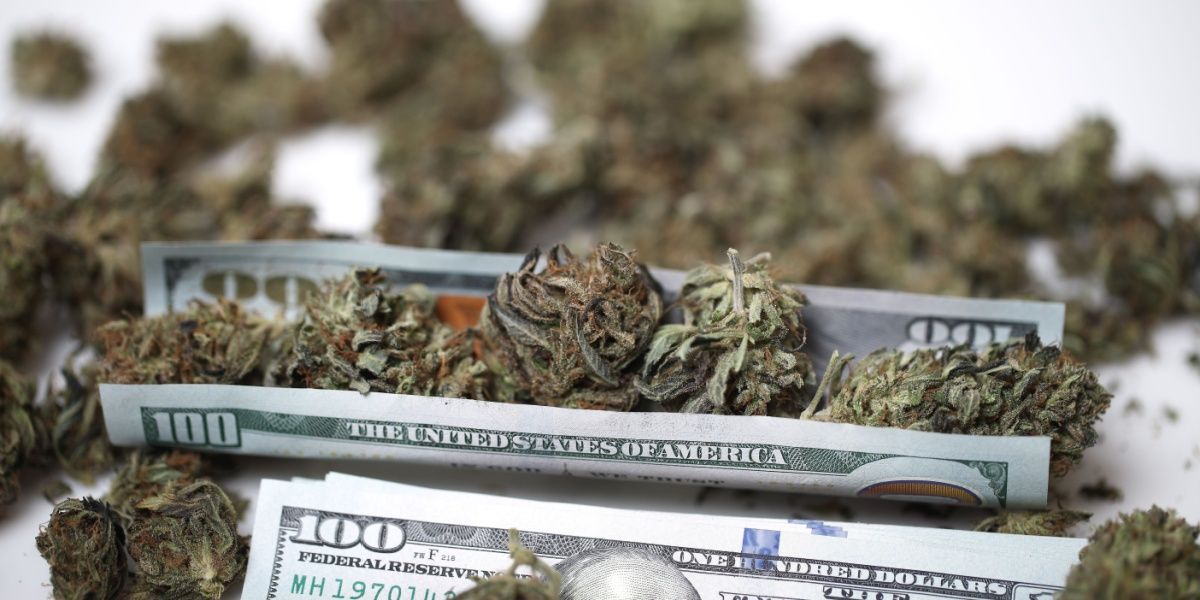Marijuana is often perceived as non-harmful and less addictive than other ‘hard’ drugs. While this is generally true, there are still some harmful effects that can come from marijuana use, especially for long-term, heavy users of the drug. One of the negative effects some people experience includes withdrawal symptoms when they cut back or stop using marijuana. Most of the withdrawal symptoms are psychological in nature, but some people also experience the physical effects of withdrawal.
- Those with a history of chronic marijuana abuse or addiction will likely experience more severe forms of withdrawal
- While the symptoms of marijuana withdrawal aren’t as uncomfortable as those felt with opioids or as life-threatening as benzodiazepines or alcohol, they can still be distressing, unpleasant, and powerful enough to force those attempting to quit to relapse back into use
- While inpatient treatment is generally not needed for marijuana, being enrolled in a structured treatment program can increase the likelihood of achieving long-term sobriety

Understanding marijuana withdrawal
Like most substances, excessive or prolonged use of marijuana can affect the brain’s chemical balance in ways that lead a person to become psychologically or physically dependent on the drug. Delta-9 tetrahydrocannabinol (THC) is the psychoactive component of marijuana that is responsible for the ‘high’ users feel when they use marijuana. Over time, people can develop a tolerance to THC, meaning they need to use more of the drug to get the desired effect. As they increase their dose, they become more likely to develop marijuana use disorder.[3] developing a tolerance to THC is also possible even when taking less potent versions such as delta-8 THC.
While the symptoms of marijuana withdrawal aren’t as uncomfortable as those felt with opioids or as life-threatening as benzodiazepines or alcohol, they can still be distressing, unpleasant, and powerful enough to force those attempting to quit to relapse back into use. The severity of withdrawal symptoms will vary depending on how long a person has abused marijuana, the potency of marijuana they use, and the quantity used each time they abuse the substance. Some people can quit marijuana use relatively easily and on their own, while some chronic users will require professional treatment.
Symptoms of marijuana withdrawal
People who abuse marijuana in very small amounts or who haven’t abused the drug for a long period of time will likely only experience mild withdrawal, with physical symptoms such as headaches, mild nausea, and restlessness. Those with a history of chronic marijuana abuse or addiction will likely experience more severe forms of withdrawal.
Marijuana withdrawal symptoms can also vary depending on the age and sex of the individual. Women have shown stronger physical withdrawal symptoms as compared to men specifically with nausea and stomach pain.[1][2][3] Spotting the warning signs of marijuana abuse early can ensure withdrawal symptoms are avoided when quitting.
Mild to moderate marijuana withdrawal
- Headaches
- Restlessness and trouble sitting still
- Nausea or GI problems
- Increase or decrease in appetite
- Increased anxiety and irritability
- Fatigue or feeling tired or drained
- Trouble focusing and concentrating
- Increased anxiety, depression, or irritability
Moderate to severe marijuana withdrawal
- Severe mood swings
- Insomnia
- Muscle pain or cramps
- Chills or hot and cold flashes
- Cravings
- Feeling miserable or depressed
Marijuana withdrawal timeline
For most, the symptoms of withdrawal from marijuana will present themselves within 72 hours and will last no more than three weeks. Some people with co-occurring disorders such as depression or anxiety have reported these symptoms being heightened for months after they have stopped taking marijuana.
A typical withdrawal period for marijuana will be as follows:
First day - Marijuana withdrawal symptoms will usually appear in the first 24 hours after last use. The most common symptoms are insomnia, irritability, and headaches.
Second and third day - Withdrawal becomes its most intense during this period and marijuana cravings are at their highest.
Week one to two - Most common withdrawal symptoms will fade entirely by the end of the second week. As THC leaves the system, some users may feel depressed as the chemical is no longer having an effect on brain activity.[1]
Marijuana detox
While withdrawal from marijuana may be uncomfortable, it is not impossible to quit on one’s own, especially for non-addicts. However, the cravings felt for marijuana in the initial stages of withdrawal can increase the risk for relapse. While inpatient treatment is generally not needed for marijuana, being enrolled in a structured treatment program can increase the likelihood of achieving long-term sobriety after a successful detox.
Those that smoked more displayed a more difficult time abstaining from marijuana use. In general, studies showed that patients who were habitual users reported significant increases in irritability, anxiety, and difficulty sleeping [3]. There is also the risk that giving up marijuana cold turkey without medical support may worsen any co-occurring disorders such as depression or anxiety. This is especially true for people who use marijuana to self-medicate other medical or psychiatric conditions.
Some studies showed success in patients using Cannabidiol (CBD) for the tapering of cannabis withdrawals. In a 7 day study, more than 60% of patients who received CBD as a part of their treatment remained abstinent in follow-ups within months after the detox.[4]
Marijuana addiction treatment
Similar to alcohol, the growing social acceptance of marijuana use can make it difficult to see that a problem exists, while also reducing awareness of the possible harms associated with the use of this substance. It is true that marijuana is less addictive than other commonly abused drugs, but some people do experience withdrawals when they cut back or stop using, especially if they are long-term, heavy marijuana users.[1]
Treatment can greatly improve the likelihood of a full recovery from a marijuana use disorder. Some studies have shown that Motivational Enhancement Therapy and Cognitive Behavioral Treatment have been found to be effective in the treatment and decrease in marijuana use. For those that engage in therapy, the study did not show major changes or deficits between the two forms of treatment in regards to coping skills for detox [5].
Seeking treatment at an inpatient or outpatient treatment facility or rehab center greatly increases the chances of being able to recover from marijuana addiction entirely. These centers offer medically assisted detox, behavioral therapy, support groups, and other treatments that can help get people to overcome marijuana use disorder, including the difficult period of withdrawal and detox.


-guide-detail.jpg?v=1756808755)

